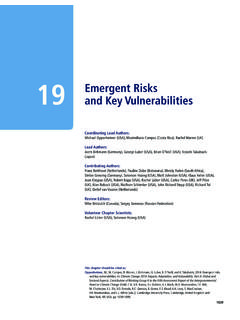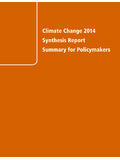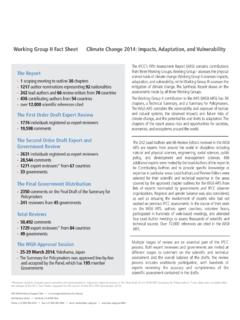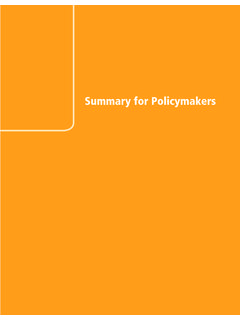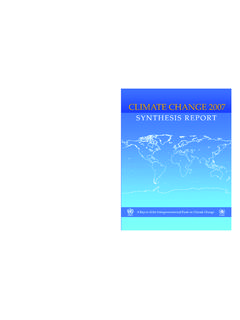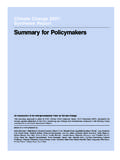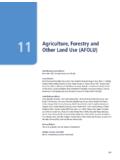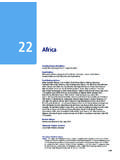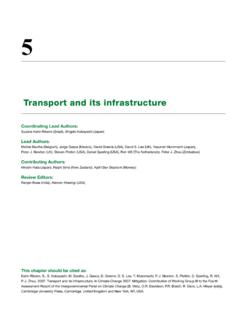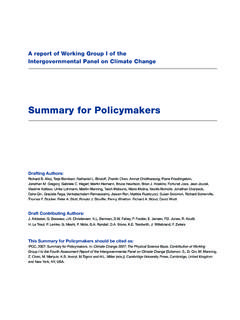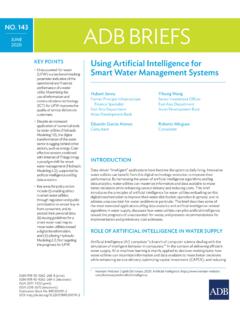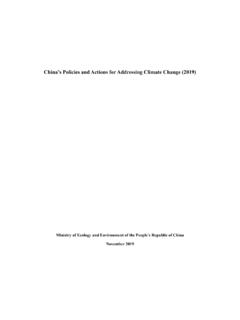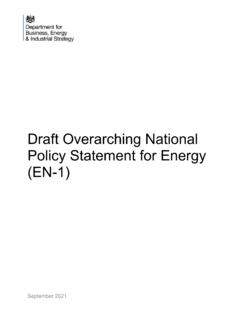Transcription of 10 - IPCC — Intergovernmental Panel on Climate Change
1 65910 Key Economic Sectorsand ServicesCoordinating Lead Authors:Douglas J. Arent (USA), Richard Tol (UK)Lead Authors:Eberhard Faust (Germany), Joseph P. Hella (Tanzania), Surender Kumar (India),Kenneth M. Strzepek (UNU/USA), Ferenc L. T th (IAEA/Hungary), Denghua Yan (China)Contributing Authors:Francesco Bosello (Italy), Paul Chinowsky (USA), Kristie L. Ebi (USA), Stephane Hallegatte(France), Robert Kopp (USA), Simone Ruiz Fernandez (Germany), Armin Sandhoevel(Germany), Philip Ward (Netherlands), Eric Williams (IAEA/USA)Review Editors:Amjad Abdulla (Maldives), Haroon Kheshgi (USA), He Xu (China)Volunteer Chapter Scientist:Julius Ngeh (Cameroon)This chapter should be cited as:Arent, , Tol, E.
2 Faust, Hella, S. Kumar, Strzepek, T th, and D. Yan, 2014: Key economicsectors and services. In: Climate Change 2014: Impacts, adaptation , and Vulnerability. Part A: Global andSectoral Aspects. Contribution of Working Group II to the Fifth Assessment Report of the IntergovernmentalPanel on Climate Change [Field, , Barros, Dokken, Mach, Mastrandrea, Bilir,M. Chatterjee, Ebi, Estrada, Genova, B. Girma, Kissel, Levy, S. MacCracken, Mastrandrea, and White (eds.)]. Cambridge University Press, Cambridge, United Kingdomand New York, NY, USA, pp. Introduction and Context .. Energy.
3 664 Energy Demand ..664 Energy Supply ..665 Transport and Transmission of Energy ..668 Macroeconomic Impacts ..669 Summary .. Water Services ..672 Water Infrastructure and Economy-Wide Impacts ..672 Municipal and Industrial Water Supply ..673 Wastewater and Urban Stormwater ..673 Inland Navigation ..673 Irrigation ..673 Nature Conservation ..674 Recreation and Tourism ..674 Water Management and Allocation ..674 Summary.
4 Transport ..674 Roads ..674 Rail ..675 Pipeline ..675 Shipping ..675 Air .. Other Primary and Secondary Economic Activities ..676 Primary Economic Activities ..676 Crop and Animal Production ..676 Forestry and Logging ..676 Fisheries and Aquaculture ..676 Mining and Quarrying ..676 Secondary Economic Activities ..677 Manufacturing ..677 Construction and Housing.
5 677 Table of Contents661 Key Economic Sectors and Services Chapter Recreation and Tourism ..677 Recreation and Tourism Demand ..677 Recreation ..677 Tourism ..678 Recreation and Tourism Supply ..679 Market Impacts .. Insurance and Financial Services ..680 Main Results of the Fourth Assessment Report and IPCC Special Report on Managing the risks of Extreme Events and Disasters to Advance Climate Change adaptation on Insurance.
6 680 Fundamentals of Insurance Covering Weather Hazards ..680 Observed and Projected Insured Losses from Weather Hazards ..680 Fundamental Supply-Side Challenges and Sensitivities ..683 Products and Systems Responding to Changes in Weather risks ..684 Governance, Public-Private Partnerships, and Insurance Market Regulation ..686 Financial Services ..686 Summary .. Services Other than Tourism and Insurance ..687 Sectors Other than Health ..687 Health .. Impacts on Markets and Development.
7 689 Effects of Markets ..689 Aggregate Impacts ..690 Social Cost of Carbon ..690 Effects on Growth ..691 The Rate of Economic Growth ..691 Poverty Traps ..692 Summary .. Summary; Research Needs and Priorities ..693 References ..694 Frequently Asked Questions : Why are key economic sectors vulnerable to Climate Change ? ..664 : How does Climate Change impact insurance and financial services? ..680 : Are other economic sectors vulnerable to Climate Change too?
8 688662 Chapter 10 Key Economic Sectors and Services10 Executive SummaryThis chapter assesses the implications of Climate Change on economic activity in key economic sectors and services, on economic welfare, andon economic most economic sectors, the impact of Climate Change will be small relative to the impacts of other drivers (medium evidence,high agreement). Changes in population, age, income, technology, relative prices, lifestyle, regulation, governance, and many other aspects ofsocioeconomic development will have an impact on the supply and demand of economic goods and services that is large relative to the impactof Climate Change .
9 { } Climate Change will reduce energy demand for heating and increase energy demand for cooling in the residential and commercialsectors (robust evidence, high agreement); the balance of the two depends on the geographic, socioeconomic, and technological income will allow people to regulate indoor temperatures to a comfort level that leads to fast growing energy demand for airconditioning even in the absence of Climate Change in warm regions with low income levels at present. Energy demand will be influenced bychanges in demographics (upward by increasing population and decreasing average household size), lifestyles (upward by larger floor area ofdwellings), the design and heat insulation properties of the housing stock, the energy efficiency of heating/cooling devices, and the abundanceand energy efficiency of other electric household appliances.
10 The relative importance of these drivers varies across regions and will Change overtime. { } Climate Change will affect different energy sources and technologies differently, depending on the resources (water flow, wind,insolation), the technological processes (cooling), or the locations (coastal regions, floodplains) involved (robust evidence, highagreement). Gradual changes in various Climate attributes (temperature, precipitation, windiness, cloudiness, etc.) and possible changes in thefrequency and intensity of extreme weather events will progressively affect operation over time. Climate -induced changes in the availabilityand temperature of water for cooling are the main concern for thermal and nuclear power plants.
